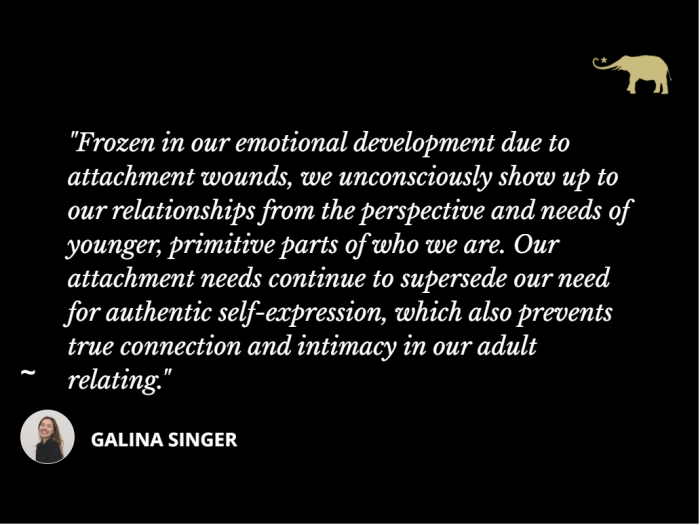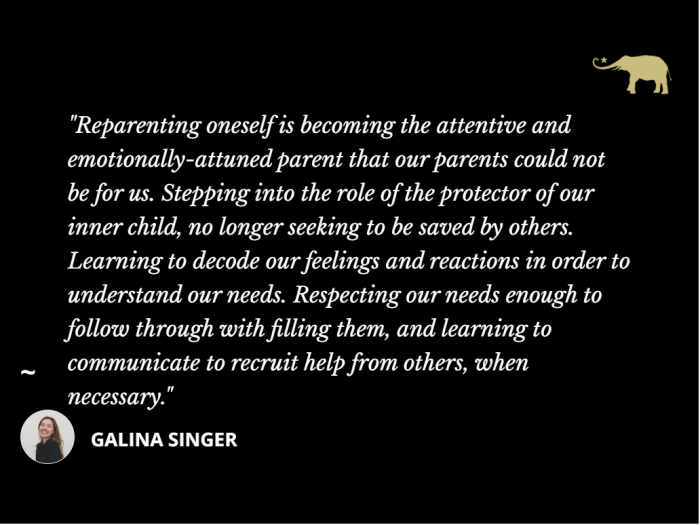View this post on Instagram
What. About. Meeeeeeeeeeeeee?
Did you ever scream so hard that your throat felt scratchy for days afterward?
This was one of those screams.
I remember the look on my husband’s and children’s faces.
My husband was puzzled. I think the girls were scared.
I know now that the scream wasn’t even directed at them, although it felt like it in the moment.
The anger that burst out of me with the violence that seemed out of proportion wasn’t about the people on whom I’ve projected it; it wasn’t even about that particular moment.
My anger—I know now—was directed outward as a result of a misguided and immature expectation that my needs can be or should be taken care of by someone other than myself. I also know that, while I held other people responsible for my feeling, I was the only one who needed to pay attention. The anger and frustration I felt in my body came from an inner conflict and carried a message for me.
So, yes, what about me?
Something happened when I married. Slowly but surely, I’d lost myself.
I was well-versed in feminist ideas and financially independent when I met my husband at 22. But when I got married a few years later, somehow, all of that independence completely evaporated and I unconsciously became someone else.
Stepping into the role of a wife, I assumed the heavy baggage of what that meant for generations of women in my family. I was no longer the savvy, accomplished, and independent young woman I believed myself to be. I morphed into a woman driven to please, programmed by the inherited survival mechanisms and ancestral trauma, shaped by my own parents’ dysfunctional relationship.
Today, I witness similar stories in many women I speak to. No matter how independent and self-sufficient we may be in various aspects of our lives, when it comes to romantic relationships, we often automatically fall into karmic patterns, compelled by our unconscious drives, and our unhealed attachment wounds.
In addition to these childhood wounds and ancestral baggage, we also bring into our relationships the culturally conditioned and completely unrealistic expectations about love. One such example is the relentless search for “the One”: someone who can sweep us off our feet, take care of our needs, and resolve our practical issues, so we can finally relax, settle in, and become soothed. Basically, a wounded child looking for a parent substitute.
When children came, my whole life became devoted to fulfilling, even foreseeing the needs of the people I loved. I concentrated all of my creativity, life energy, and gifts in service to an ever-elusive ideal of being a good mother and a good wife.
I know now that I couldn’t have made different choices. I made no room for me or my needs because no one ever taught me that it was important. My parents modeled self-sacrifice to obligation and duty. I grew up managing other people’s impressions of me, while I tried to keep up achieving age-related milestones.
I did not know then that I spent most of my life in a fawn state of a stress cycle: focused on pleasing people on whom I depended for survival. Making sure they will not want to hurt me (or reject me, or abandon me), I was ready to do anything to ensure they were satisfied.
Like most people, I developed this adaptation in childhood. The process is largely automatic—one of many invisible processes that happen to assure our physical survival.
While these survival adaptations serve us very well in childhood—when we are helpless and very much dependent on our adult caregivers—it is maladaptive when we become adults. In adulthood, these adaptations limit our growth and our ability to make conscious decisions and empowered choices, keeping us in survival mode when we could be thriving.
In my 40s, I found myself helpless, disempowered, and feeling stuck in my life. I did not know then that this was not the truth of my situation, but a skewed and limited perception of my reality through the eyes of my inner child.
Frozen in our emotional development due to attachment wounds, we unconsciously show up to our relationships from the perspective and needs of younger, primitive parts of who we are. Our attachment needs continue to supersede our need for authentic self-expression, which also prevents true intimacy and connection in our adult relating.
When we experience the end of a relationship as a threat to survival, we’ll self-betray in order to maintain it. We spend a lot of energetic resources over-analyzing and obsessively thinking about our partners—whom we unconsciously view as parent substitutes—addicted to the need to be chosen, to be right, to win. No matter how hard we try to get our needs met through control and manipulation of others, fulfillment eludes us. This causes a lot of resentment and animosity in our relationships.
Anger is often a sign of a disappointed expectation or an unmet need. We tend to project our anger on people with whom we are in a relationship, holding them responsible for our frustration and dissatisfaction. But looking outward for relief is what often keeps us stuck.
Our feelings carry lots of important information for us. When I feel disappointed or angry, I look at my expectations and check them for reality. As most of us in relationships find out sooner or later, our culturally conditioned ideas about love and “happily ever after” are completely unrealistic. Revising my beliefs and expectations about life, love, relationships, and people has over time resolved the majority of my frustration and disappointment.
Detoxing my beliefs and redefining my values, I also understood that once we become adults, it is nobody else’s job to take care of our needs.
Learning to take care of ourselves, like the grown-ups that we are, is, in fact, the work of reparenting ourselves.
Realizing that I am my own responsibility was a sobering moment in my life. I fought it. It depressed me and made me feel lonely, abandoned, even betrayed. Raised in a culture where love was expressed through worry and sacrifice, not being anyone’s responsibility brought a paradigm shift.
It is so clear now that no one can take better care of me than I can. No one can feel my feelings or think my thoughts, or be a better expert on my needs, my desires, my boundaries, my dreams.
Reparenting oneself is becoming the attentive and emotionally-attuned parent that our parents could not be for us. Stepping into the role of the protector of our inner child, no longer seeking to be saved by others. Learning to decode our feelings and reactions in order to understand our needs. Respecting our needs enough to follow through with filling them, and learning to communicate to recruit help from others, when necessary.
It’s not easy to step into our agency as grown-ups when we are raised on love as self-sacrifice and fear being called selfish. Bumping up against my own feelings of guilt when I started taking time to self-care, I understood that the tyrant wasn’t on the outside. The anger that I projected outward was actually the result of my own conflicted relationship with the internalized critical voices and the need for nurturance of my inner child.
Unexpectedly, it was my anger that woke me up to the truth about love, responsibility, and deserving of connection. When I moved beyond my sense of shame and guilt for feeling it toward the people I love and simply allowed myself to experience the full depth of my anger, it took me beyond my exhaustion, my inability to say no, my sense of feeling trapped, beyond my story that “they did this to me.”
My anger had a lot to say about what I want, what is important to me, and how I deserve to be treated. It taught me about fairness and justice and helped me regain my sense of self.
To get the respect we demand from others, we first have to give it to ourselves. When we learn to attune to our own needs, reparent ourselves, and complete our emotional development, we can finally be mature enough to form nurturing and intimate relationships with others.
I now navigate life as a grown-up, no longer waiting to be saved or feeling like anyone owes me something. Deserving of my needs and wants, I attend to them without guilt, extending the same courtesy to others.
It took a while to understand how I can be self-sufficient and in a relationship. How to be independent and responsible for my well-being without abandoning my commitments. How to navigate the comfort of attachment without compromising my authentic self-expression.
I had to learn that the choice is not to be free or to be in a relationship. What I am interested in and devote my life to now is how to remain a free individual within relationships, both as a mother and a wife.
Learn how to reclaim the safety to be yourself in your relationships. Contact me for a free introductory conversation.


 Share on bsky
Share on bsky






Read 42 comments and reply